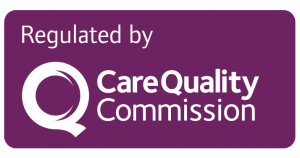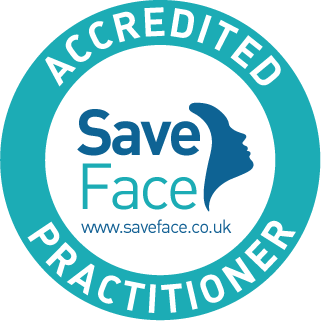All You Need to Know About Rosacea
Rosacea is a long-term chronic skin condition that affects millions of people worldwide. The symptoms of rosacea cause redness in the skin, making it appear flushed. Whilst there is no ‘cure’ for rosacea, there are a number of ways to manage flare-ups and reduce symptoms.
What are the symptoms of rosacea?
The most common symptom of rosacea is the ‘blush’ factor. The skin appears to flush easily, turning red or a deep pink colour, and this can come and go. Flare-ups can also be accompanied by bumpy spots and pus-filled pimples, painful rashes and a burning or sensitive feeling to the skin. Other symptoms include visible broken blood vessels, dry skin, enlarged pores, bumpy eyelids and eye irritation.
Where does rosacea affect?
Rosacea is most commonly seen on the face; across the cheeks, nose, forehead and chin. However, the condition can also affect the ears, neck and scalp– or even as far as the chest and back.
Who does rosacea affect?
It is possible for anyone to suffer from rosacea, however the condition is most common in women and people with fair skin. The redness and other visual symptoms can appear worse on fair skin, as the inflammation is harder to see on darker skin tones. Rosacea is more likely to affect women experiencing the menopause, and generally is more common in people aged 30-60. Although slightly less common, men can also be affected by rosacea and symptoms can be more intense. Rosacea is often seen to run in family genetics.
Different types of rosacea
There are 4 commonly known types of rosacea, although it is normal to experience a combination of symptoms from more than one type.
Erythematotelangiectatic rosacea (ETR) is probably the most well-recognised, with symptoms of facial redness, flushing and visible broken blood vessels.
Papulopustular rosacea often affects middle aged women or women experiencing the menopause, and is characterised by pus-filled pimples, bumps and lumpy blemishes (often alongside facial redness). This can often be mistaken for acne.
Phymatous rosacea is a rare type of rosacea, which is more often seen in men. Phymatous rosacea can cause the skin around the nose to thicken (rhinophyma), and the complexion can become tough, scarred and painful.
Ocular rosacea affects the eye area, and can cause irritation, sensitivity and dryness. The eyes can become watery, bloodshot and may produce cysts.
What causes rosacea?
The long-term cause of rosacea is unknown, however the condition can be genetic. Rosacea is not caused by poor hygiene or skincare, and can affect people living in various lifestyle, health and environmental conditions.
What triggers rosacea symptoms?
Although the long-term cause of rosacea is yet to be known, the short-term triggers can be kept at bay. Those living with rosacea can control flare-ups by avoiding triggers in certain foods, environments and situations. Triggers can vary from person to person, which is why it’s very important to note down what causes your rosacea flare-ups in order to treat the condition.
Some common environmental triggers are sunlight, heat, strong winds and cold. Rosacea can also be triggered by spicy food and alcohol (particularly red wine). Those suffering from rosacea should also take care with the skincare and cosmetics that they choose to use, as products containing menthol, witch hazel, acetone and fragrances can also make symptoms worse.
How can we treat rosacea?
Here at the Elegant Clinic, we not only offer treatments that could help with your skin condition, but Shikha is also a qualified prescribing pharmacist and experienced medical professional who can provide you with clinical advice.
A few services that we offer are proven to help treat and calm rosacea; Hydrafacial, ZO Rozatrol and Alumier Calm-R. We can also prescribe prescription strength metronidazole gel, which is not available over the counter.
Other than the treatments and medications that we have available, we would advise cleansing twice daily with a gentle soap-free cleanser like Cerave or Cetaphil, and rinsing with lukewarm water to reduce flushing and dilating of blood vessels.
Moisturise twice daily to reduce irritation, stay away from harsh exfoliants and chemicals in cosmetics, and keep an eye on the ingredients in your skincare– try to avoid alcohol, camphor, artificial fragrance, glycolic acid, lactic acid, menthol, sodium laurel sulfate (often found in shampoos and toothpaste) and urea.
Finally, wear a broad spectrum sunscreen all year round with SPF30.
Do you suffer with rosacea? We are always on hand to offer advice and support, so do get in touch or book a free consultation at Elegant Clinic today.






